Image: Tinnu Anand's villainous turn in Monica.
Patcy N in Mumbai
Patcy N in Mumbai
Actor-director Tinnu Anand lives in Madh Island, far away from the madding crowd of Mumbai. The journey to his home is a long one but, once you get there, you fall in love with the place.
Rediff.com's Patcy N and photographer Nadisha Daniel were shown into his office which had pictures of Anand working with Satyajit Ray; obviously, these were deeply cherished memories. There were, however, no signs of any of the trophies he has won.
"I keep them out of the house to scare the crows," he laughed, when asked about it.
Anand has acted in scores of movies. He has directed Amitabh Bachchan in films like Kaalia, Shahenshah, Main Azad Hoon and Major Saab. Anand, in fact, is unwittingly responsible for have introduced the world to that superhouse of talent, Amitabh.
Before Anand started his directorial career, he closely assisted master filmmaker Satyajit Ray.
Actor-filmmaker Tinnu Anand goes back in time to dig out lively facts from his life and career and reveal new secrets about the Hindi film industry...
Early years
My father, Inder Raj Anand, was a well-known writer in the film industry but he did not want me, or my younger brother Bittu, to enter this industry. He would say it was not the place for us.
One day, my younger brother who was studying in a school in Colaba (in South Mumbai) came home with the news that Nargis had married Sunil Dutt. This was pretty shocking news at that time.
My father hated gossip and he thought this was just gossip. When he came to know it was true, he packed our bags and took us to Mayo College (a boys-only independent boarding school in Ajmer).
Later, when I told him I wanted to direct films, he was very upset. Ultimately, though, he saw that I didn't want to do anything else. So he sent me to the best school -- the Satyajit Ray school. Mr Ray and my father were friends, so my father asked him to take me under his wing.
In fact, my father gave me three choices. I also had the option of working with Raj Kapoor, who was very close to us. But he was too close; we're related and my father had written three scripts for him.
The third choice was Fellini (iconic Italian director Federico Fellini). I chose Fellini because I would get a chance to go to Italy.
Fellini wrote to my father saying that I needed to learn Italian first.
I did not want to spend six long months learning Italian, so I chose Ray. He was starting a film in January, so I packed my bags and went to Kolkata.
'Amitabh got the role of the poet that I was supposed to play'
Image: Clockwise: Tinnu Anand with Dhritiman Chatterjee on the sets of Pratidwandi, Satyajit Ray, Simi Garewal with Tinnu Anand and Satyajit Ray on the sets of Aranyer Din Ratri.Photographs: Nadisha Daniel
Amitabh Bachchan's big Bollywood break
In the meanwhile, I had signed K Abbas's film Saat Hindustani. He was a close family friend.
During my school and college holidays, I would go to Abbas saab and beg him to give me a passing shot in his films so he would give me small parts. But, in Saat Hindustani, he gave me one of the leading roles.
Abbas saab needed a heroine. He saw Neena Singh, a friend of mine from Delhi, at my house and wanted to know if she would act in a film. She agreed.
Neena asked me if I could give a picture of her friend who lived in Calcutta (as Kolkata was then known) and worked in Bird and Co, to Abbas saab. Her friend, she said, was interested in cinema and wanted to become an actor.
The photograph showed a very tall man standing outside Victoria Memorial.
Abbas saab said the man had to come to Mumbai at his own expense for the audition. He also said he did not know when the audition would take place so the aspiring actor would have to wait and would not be paid for it.
That is how Amitabh Bachchan landed up in Mumbai.
I was the one who took him to Abbas saab's office.
In the evening, I was given the dirty job of offering Amitabh Rs 5,000 for the entire film, whether it took one year or five to make.
Bunty (Ajitabh) and Amitabh looked at each other. They were absolutely shocked!
Amitabh reluctantly agreed as he was desperate to act. He got the role of the poet's friend in Saat Hindustani.
When my father got the letter from Satyajit Ray saying I could work with him, I had to give up Saat Hindustani. So I left for Calcutta and Amitabh got the role of the poet that I was supposed to play.
It was a very powerful role!
He made a tremendous impression on people in one sequence where his foot gets cut with a razor and he has to walk across the border from Goa to India.
'The fact that I had assisted Satyajit Ray became a disqualification'
Image: Tinnu Anand acted in regional films as well. He is seen here in the Malayalam film, Twinkle Twinkle Little Star.Anand's Bollywood struggle
After five years, I decided return to Mumbai. I had always wanted to make my own film.
I came back to Mumbai with the tag of having assisting the legendary Satyajit Ray.
I thought that would be a medal, but it became a disqualification.
People thought I would only make serious kinds of cinema. I hungered for work for two years.
I sustained because I had a very successful father and a working wife -- my father insisted that I marry Shehnaaz (Jalal Agha's sister), whom he loved more than he loved me.
Shehnaaz ultimately became the heroine of Saat Hindustani because Neena went to Delhi and did not turn up after the first schedule, which was to be shot in Goa.
In the two years that I did not get to direct any films, I did 70 advertising films. That kept the kitchen fire burning.
'Rishi Kapoor never came on the sets before 10.30 am'
Image: Tinnu Anand played a Sardar in Tere Naal Love Hua, which released earlier this year.First movie, first flop
I started my first film, Duniya Meri Jeb Main, with my childhood friends, Shashi and Rishi Kapoor. My brother became the producer. It was nice of Rishi to support my brother by not charging us a single penny.
Rishi is a very good actor but I was unhappy with his discipline because he never came on the sets before 10.30 am. And I could get only two hours from Shashi -- from 7 am to 9 am. That's why my first film took me five years.
When I was assisting Satyajit Ray, all the actors would sit in front of him and not in their make-up rooms. Here, one came in at 7 am and left two hours later. The other came in at 10.30 am.
I didn't learn filmmaking from Ray. I learnt it from (action director) Veeru Devgan. He needed actors for two hours only.
I give all credit to Veeru, who taught me how to unlearn what I had learnt. He told me that if you have to survive in this industry with actors like these, you should learn how to shoot a film even when the actor is not there!
So I would shoot with a duplicate and not wait for the actors. It was faster that way as the cameraman knew the lighting. Everything would be done. All the actor had to do was come and stand. That's how films would be shot those days.
In fact, I felt very proud when I showed Amitabh a scene between him and Amjad Khan in a dubbing studio one day. He was shocked and said, "But I never shot with Amjad."
'I cornered Amitabh on the sets of Don'
Image: Tinnu Anand first directed Amitabh Bachchan in Kaalia.How he got Amitabh Bachchan for Kaalia
Even while Duniya Meri Jeb was being made, I was working on a story called Kaalia. That story made its rounds to various people before I narrated it to Amitabh. I was running after him for a year, from studio to studio, and every time he would say not today, tomorrow.
I was not upset that he was making me run around as he really had a busy schedule. Besides, I did not do him any favour with Saat Hindustani -- he had become what he had of his own accord; it was his effort.
Finally, I cornered him on the sets of Don.
I still remember the day I finally narrated my script. When I finished, he was silent. I said, "You don't have to tell me that you like my script because I know you like it very much."
He was shocked and asked, "How do you know that?"
I said, "Before I came, a few people told me that if Amitabh Bachchan is hearing a script and he looks towards the sky and he starts stroking his hair, it means your script is rejected. I am glad you did neither while I was narrating the script.'
He liked my confidence and said yes.
Thus started my long association with him. We became extremely close.
After Kaalia, we did Shahenshah and Main Azaad Hoon together. When he started his own production company, he invited me to direct Major Saab.
While shooting for Saat Hindustani in Goa, the cast and crew stayed in a dormitory.
Amitabh's corner in the dormitory was meticulous. There was a trunk with Amitabh written on it; the bedding was rolled up; his plate and mug were in place. His corner was the cleanest and the most organised. And that's how his life has been all these years.
He has led a disciplined life, whether it is his food, his manners or his work. He has always been a disciplined actor. If you call him for a 7 am shoot, he will be there 7 am sharp.
'I have had four major arguments with Amitabh and I have won all four'
Image: After burning his hands in politics, Amitabh Bachchan made a comeback to movies with Tinnu Anand's super-successful Shahenshah.Anand-Amitabh's big fights
I have had four major arguments with Amit and I have won all four -- two during the making of Kaalia, one during the making of Shahenshah and one during the making of Major Saab.
In Kaalia, we fought because Amitabh wanted to change a particular dialogue. I was adamant I wouldn't because it was written by my father.
In Shahenshah, we fought because he wanted to wear a blazer in a very important scene. I wanted him to wear his police uniform. He refused and did not come out of his room.
It was the last day of Amrish Puri's shoot. I would have lost money if Amrishji hadn't completed his work as he was going on an outdoor shoot the next day.
When I went into Amitabh's room after two hours, he had still not changed. He said he wanted to speak to my father. So my father came on the sets. He saw us both sitting in separate corners and sulking.
At first, my father supported him. But when he realised that I was right, he told Amitabh: "Amit, do you see this dustbin? It has three ragged cloth pieces of saffron, white and green. If you stitch those rags together, it becomes your national flag for which you can give or take a life. In the same way, a uniform is important to a policeman as behind it is the might of the nation."
Amitabh agreed, got up and wore the uniform.
When I was shooting a scene in Rajkot with Amitabh and Shabana (Azmi) for Main Azad Hoon, she asked him if he did anything when he was a member of Parliament. "Were you a catalyst in changing anything? Did you bring in any law?"
He replied, "One day, I went for dinner at Rashtrapati Bhavan, I saw everyone eating on plates that had the national emblem as part of the design. I did not like it. I raised the point in Parliament that you can't demean the national emblem, it's not right.'
Soon a law was passed that there would be no national emblem on the plates.
He told Shabana that this thought was inspired by my father and described the fight that had taken place between us on the sets of Shahenshah.
We had a fight during Major Saab as well.
Amitabh wanted an extra take and I was running out of time so I said no. He said, "I am the producer."
I told him, "If you are the producer, then you direct the film." And I walked out because I do my work well and don't want anyone to question my work.
'I have carried money from Amitabh's house to pay Abbas saab's hospital bills!'
Image: Amitabh Bachchan.Photographs: Gareth Cattermole/Getty Images
Amitabh Bachchan's generosity
During the making of Kaalia, and especially during the making of Shahenshah, everyone commented that they had never seen Amitabh behave the way he behaved on my sets. He was more open, lively and jolly.
I enjoyed that advantage.
It was evident that he wanted to have fun but couldn't because of his serious image.
People call Amitabh a big kanjoos (miser) but he has given me 23 watches! If I ever said I liked a watch he was wearing, he would gift it to me.
One day, he gave me a watch off his wrist and the very next day he took it back. "I forgot this watch is gifted by Jaya (Bachchan, Amitabh's wife) on our anniversary. She will kill me. Please give it back; I will get you another one."
One day, I went to Amit and told him, "Abbas saab has sold the rights of Saat Hindustani for Rs 5,000 as he needed a roll of negatives to shoot a movie."
Amit was shocked and hurt. If he had known that Abbas saab needed something, he would have helped him. The next day, without my knowing it, his brother left a packet at Abbas saab's house.
Amit had requested him not to sell his movies as they were a gold mine. He told Abbas saab that if he needed money any time, he should let Amit know.
Amit had made me promise that I will not reveal this incident to anyone while Abbas saab was alive. Today, he is no more. People should know about this, so they know what kind of human being Amitabh is.
I have even carried money from Amitabh's house to pay Abbas saab's hospital bills.
'Rajendra Kumar was a kanjoos, that's why he did not invest money in his son's movie'
Image: Tinnu Anand's comic turn with Sharat Saxena and Johnny Lever in De Dana Dhan.Working with Kumar Guarav
I did Yeh Ishq Nahin Aasaan with Rishi Kapoor and Padmini Kolhapure and Muthi Bhar Zameen with Kumar Gaurav, which never released.
His father, Rajendra Kumar, was producing a film for him called Jurrat.
Mahesh Bhatt saw my film and told Rajendra Kumar to stop all his productions and finance my film instead. "It is stuck for finance but this film will run. This film will bring back your son as an actor," he said.
Rajendra Kumar didn't do it.
The movie was completed but the distributors washed their hands off it because, by then, Kumar Gaurav had become a flop actor. Nobody wanted a Kumar Gaurav film even though it had some of the finest music.
Rajendra Kumar was a kanjoos, that's why he did not invest money in his son's movie. Kumar Gaurav was a top actor. If Amitabh was signing a film for Rs 24 lakh, Kumar Gaurav was signing a movie for Rs 14 lakh.
I even made a film with Suneil Shetty called Ek Hindustani, which never released for the same reason. Suneil had lost the market by the time the film was ready for release.
It was very disappointing and one of the reasons I did not wanted to direct any more.
'You will never be able to walk the streets of Madras'
Image: Tinnu Anand debuted as an actor in Kamal Hasaan's Pushpak.Tinnu Anand's acting assignments
My first film as an actor was for Jalal Agha. It starred Sarika, Naseeruddin Shah and Amol Palekar.
Though the film never released, everybody in the industry saw it in the trial shows. People liked my character but as the film never released, I became a director.
One day, when I was shooting Shahenshah, I got a trunk call (STD call) from Madras (as Chennai was then known).
Sarika, who had got married to Kamal (Haasan) by then, was on the line. She told me they were planning a film called Pushpak.
Amrish Puri had promised them dates but had become very busy. They could not get actors from other south Indian languages. Kamalji saw my photograph somewhere and wanted me. I was asked to go to Chennai the next day, just for a day.
I told Kamalji I was working with Amitabh Bachchan and I couldn't change his dates. He pleaded with me.
So I went nervously to Amitabh's door and told him what the problem was.
He asked me, "'So, do you want to act?"
I said, "I don't mind because it is a silent film and it's an experimental film. And they are desperate to have me."
He told me to go. He said we could resume shooting the day after I got back.
That's how Pushpak happened.
While I was doing Pushpak, Kamal told me he had finished a 10 day shooting schedule for a film called Nayakan with a young director called Mani Ratnam. He praised Ratnam a lot. He thought that if the film was released, it would be a benchmark not just in Tamil cinema but in Hindi cinema as well.
He said there was a very important role being written and he had suggested my name.
I laughed and told him I was a director, not an actor.
But he insisted I do it. He said, "If it turns out the way we have planned it, you will never be able to walk the streets of Madras."
And, truly, when I walked the streets of Madras after the release of Nayakan and Pushpak, everyone knew me. That was a very, very important break that Kamal gave me... in both those films.
People did not recognise me as a director on the streets; they recognised me as an actor. That made me think acting was a better job.
Pushpak ran for 25 weeks in Bangalore (now known as Bengaluru). Whenever I've been to Bangalore, to a bar or a restaurant, someone has always picked up my bill. I have never paid a bill in Bangalore!
Even today, whenever I feel low, I drive to Mumbai's busy Linking Road. I stop my car and start walking. When people recognise me, it gives me a high.
At the same time, it gives me a warning that, in an actor's life, you can face what Rajesh Khanna faced.
He used to sit on the balcony in his bungalow at Carter Road (a well-known road and promenade in Mumbai's elite surburb, Bandra) in the later days of his life. At one time, he was the most famous actor in India, with the biggest fan following. And now, no one looked up at him on that balcony. No one cared that he was there.
'Till today, Shahenshah remains a gold mine'
Image: Manoj Joshi, Milind Gunaji, Tinnu Anand in Khatta Meetha.Bollywood's tragic ways
I have spent 35 years in this industry and seen both ups and downs.
When I was shooting Duniya Meri Jeb Mein, I signed seven more films as director because they thought I brought in something new -- new visuals, a new camera sense...
Let me tell you the tragedy of this industry and how it works.
There was this beautiful Triumph sports car in Bombay, the only one of its kind. It belonged to a producer who gave me the car as a signing amount and asked me to direct a film for him. I took the keys but kept the car in the garage for three months.
This industry is in my blood. I knew the producer had approached me because he had heard very good reports about my film, Duniya Meri Jeb Mein. But if the film didn't succeed, he would take the car back. So I did not want to drive it.
Duniya Meri Jeb Mein flopped. The producer came asking for the car, saying he had to show it to the transport office because it was a foreign car. I told him, 'I know you have come to take back your car.'
I was born in the industry so I knew that, if I met with success, I would get 10 more cars as signing amounts. But if my film fails, the producer will take back the car.
I got lucky with Kaalia. It became a huge success.
After that, Shahenshah happened and then there was no looking back.
Till today, Shahenshah has been a gold mine because of satellite rights and all that.
'In one night, my father lost 18 films'
Image: Tinnu Anand in a contemplative mood.Photographs: Nadisha Daniel
When his father slapped Raj Kapoor
My father also saw lots of ups and downs. He was the most popular writer in the film industry. He was writing about 18 films. A fight broke out between them on the night of Sangam's release and my father slapped Raj Kapoor.
In retaliation, Raj Kapoor and all the people connected with Sangam -- Rajendra Kumar, Vyjantimala, Shankar-Jaikishen, Hasrat Jaipuri, Shailendra -- and their friends boycotted my father.
In one night, my father lost 18 films. And then, he had a heart attack. It was a very tough time. He had this glorious future with those 18 films and, suddenly, all of that went away.
It was not just a monetary loss; his confidence was shaken. Everyone who was responsible for his heart attack realised what they had caused. They all came back to him.
Raj Kapoor was in London then, so he sent his wife to meet him.
Luckily, I did not go through a financial slump like my father, but I have faced failure.
I have a very strong family. My wife is very strong spiritually. My children are very strong.
My daughter Esha has been to Antartica twice and to the Arctic once. She saves whales from ships that kill whales for profit.
My daughter Diksha is a fashion designer -- she has done films like No Entry and Tere Bin Laden.

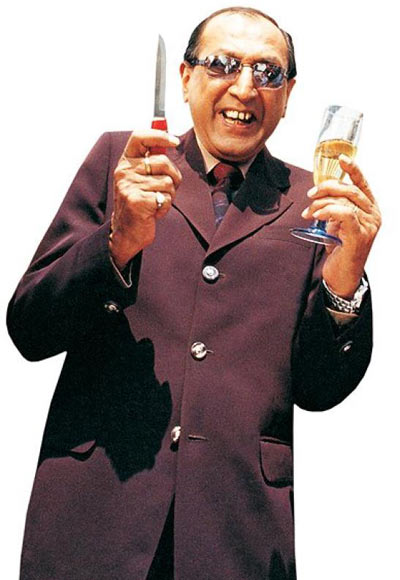
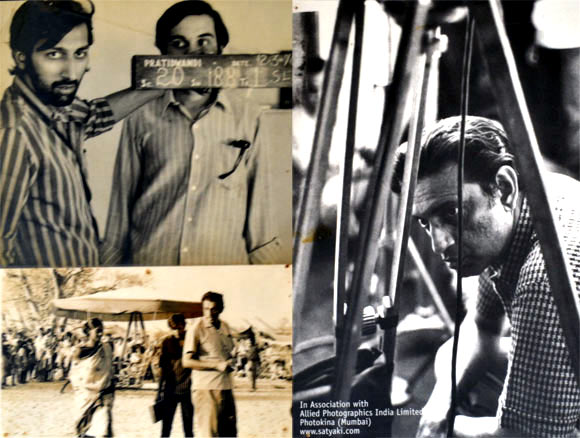
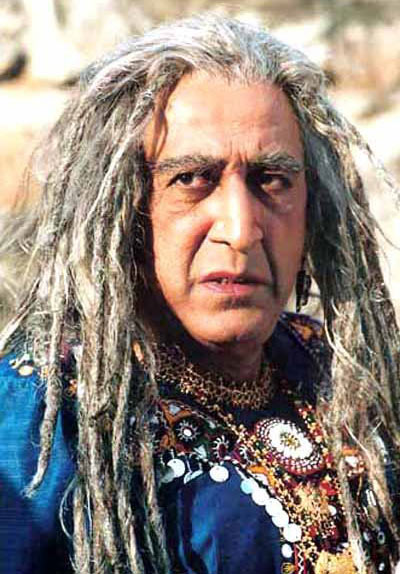
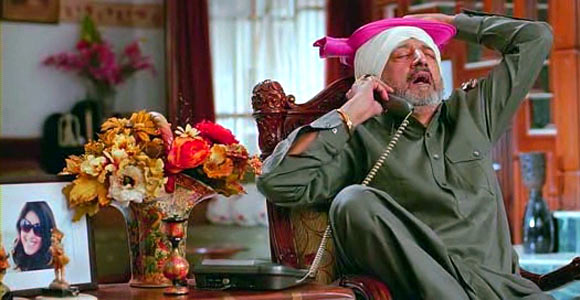
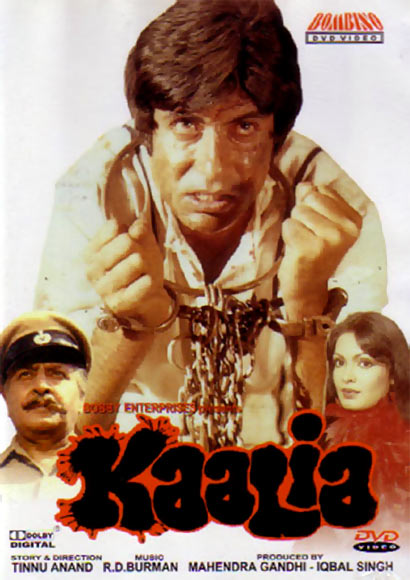
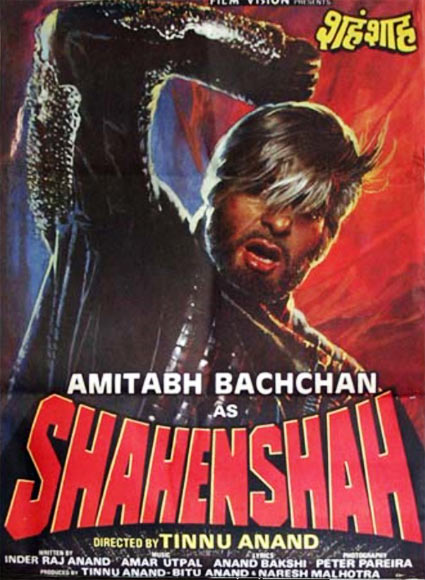
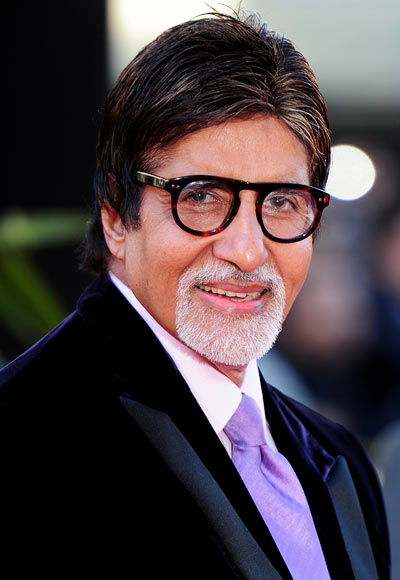
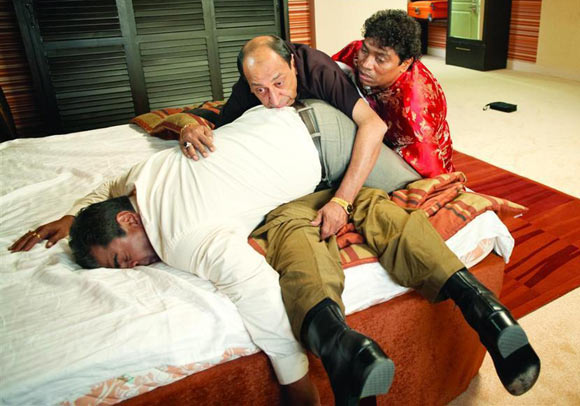
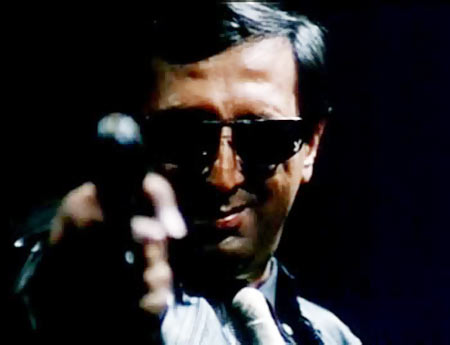
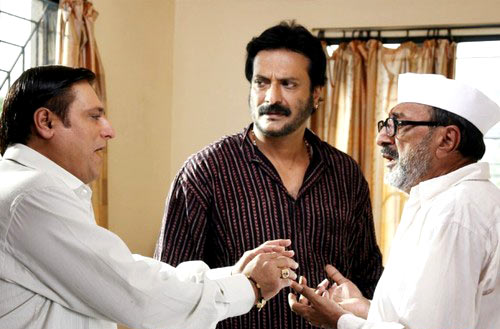

Comment
article